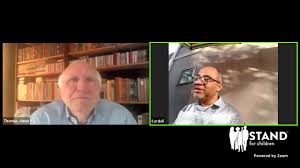
Few phrases are as overused today as “defining event,” but it’s never as accurate as when Boomers look back at the life and death of Dr. Martin Luther King Jr.
He was as large an influence as our own families. His words and his courage inspired our values and our beliefs. His death endowed our lives with an unsettling blend of high ideals and cynicism.
We are like World War II veterans whose retelling of their experiences places them immediately in that exact moment in time — sanitation workers crushed to death among the garbage of their own trucks, tanks lumbering down Poplar Avenue, and the suffocating sense of civic failure.
Most of all, we recall the aching sense of loss. It wasn’t just Dr. King’s gift of oratory. It was also the gift of prophecy so dramatically on display the night before his death, and the truth of the prediction that resonates in today’s Memphis: that the quest for equal rights would give way to the quest for economic justice.
The president of the Memphis Chamber of Commerce in 1968 had his own prediction: “If the Negro ministers would tend to their ministering instead of trying to stir things up, we wouldn’t have had this trouble. Nothing can be done about this situation. It’s going to take 40 years before we can make any real progress.”
At that point, it was unfathomable that those four decades would pass without Dr. King, and taking stock now, while there are proud milestones of progress, the promise of dramatic economic progress for African Americans remains elusive.
The good news is that the black middle class and upper-middle class are now wider and deeper. The bad news is that the median white family income is almost twice the median black family income and the gap seems as much a part of Memphis as the Mississippi River.
Today, 40 years after Dr. King led the fight for average workers to get paid more, economic indicators for African Americans continue to be troubling. That’s something that probably would not have surprised Dr. King.
What would have surprised him is that within months, Memphis will become the first metro area with more than a million people to be majority African American. Plenty of U.S. cities are majority African American within their city limits, but there is no other place that is majority minority in its entire metropolitan statistical area.
If Memphis officialdom in 1968 could not come to grips with the notion that the least among us — sanitation workers with no pensions or life insurance — could change Memphis forever, today, we still haven’t come to grips with the reality of being a majority African-American metro.
At a recent Leadership Memphis meeting, a man who embodies the new attitude of young African Americans in our city said: “We just have to promise ourselves that we will be brutally honest. There are people here and there are people around the country who believe that being majority African American means that we cannot succeed. It’s like we have no choice but failure. But we do.”
The choice begins by acknowledging diversity as our most distinctive attribute in every economic development brochure, by targeting African-American heritage tourism, and by talking honestly to each other. In a world where diversity is the rule, not the exception, the challenge for Memphis is to leverage its diversity into a global competitive advantage.
To do it, Memphis must deal today with problems as real as they were in 1968. In a comparison of 35 metro areas — including Detroit, Cleveland, Pittsburgh, Cincinnati, Nashville, Baltimore, Philadelphia, Washington, Atlanta, Kansas City, Oklahoma City, and Louisville — Memphis ranked number one in several categories: families headed by single parents, families in poverty, smallest percentage of adults with advanced degrees, smallest percentage of firms (with employees) owned by African Americans, births to teen parents, and children living in poverty.
If we learned anything from Dr. King, it was that in speaking the truth, there is no place for scapegoating, whether it’s in polarizing rhetoric or in the weekly tally on the front page of our daily newspaper of babies born to single mothers. Rather, as Dr. King urged, it is in joining hands and facing issues with humanity that Memphis has its best chance to solve them.
Perhaps, in doing so, Memphis gives new meaning to Dr. King’s words from the night before his death: “I don’t know what will happen now. We’ve got some difficult days ahead. . . . We, as a people, will get to the Promised Land.”
It is that journey to the Promised Land that the entire Memphis metro should embrace.
***
This article, which remains just as relevant today appeared in the April 2008 issue of Memphis Magazine
***
Join us at the Smart City Memphis Facebook page for daily articles, reports, and commentaries that are relevant to Memphis.



